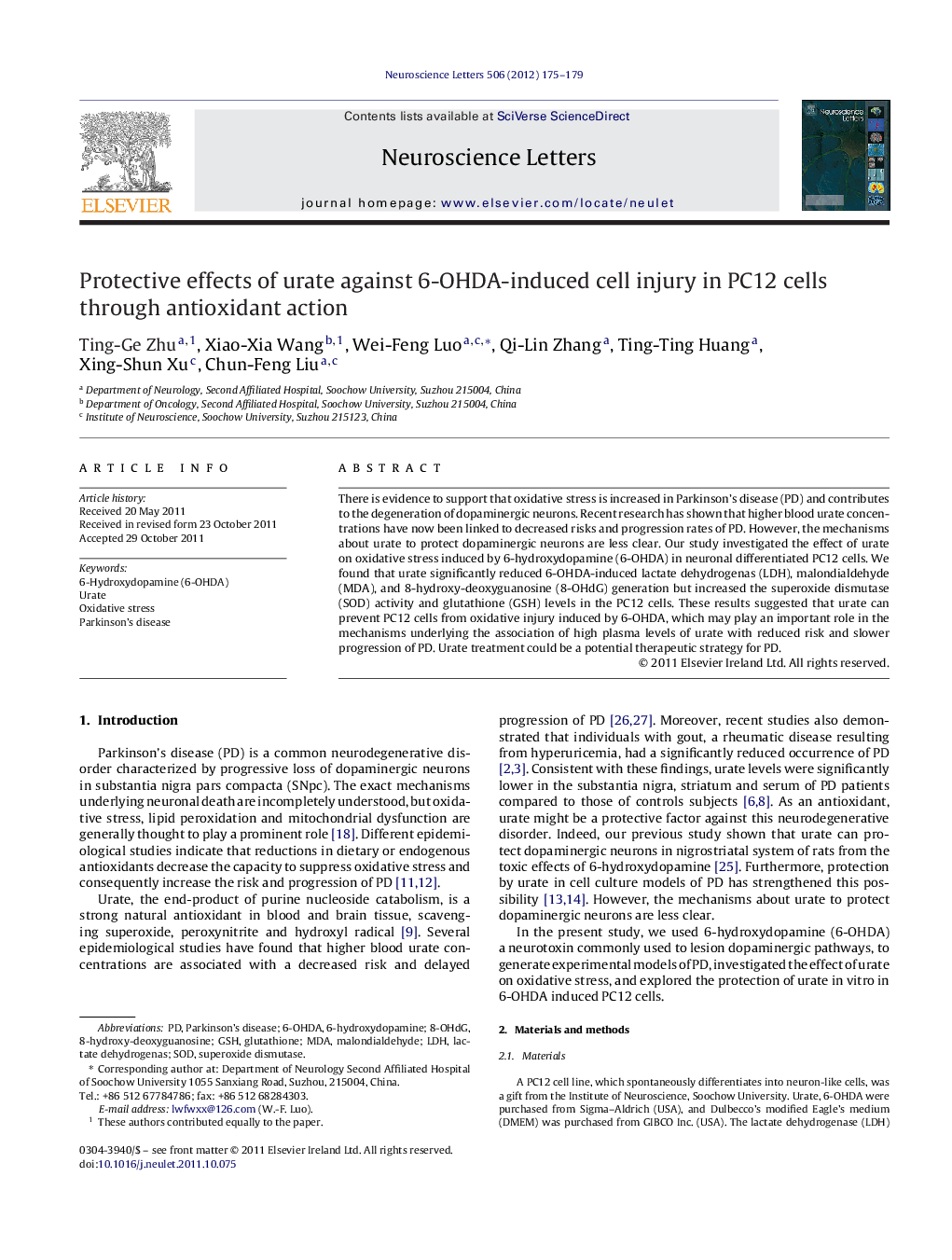| Article ID | Journal | Published Year | Pages | File Type |
|---|---|---|---|---|
| 6284300 | Neuroscience Letters | 2012 | 5 Pages |
There is evidence to support that oxidative stress is increased in Parkinson's disease (PD) and contributes to the degeneration of dopaminergic neurons. Recent research has shown that higher blood urate concentrations have now been linked to decreased risks and progression rates of PD. However, the mechanisms about urate to protect dopaminergic neurons are less clear. Our study investigated the effect of urate on oxidative stress induced by 6-hydroxydopamine (6-OHDA) in neuronal differentiated PC12 cells. We found that urate significantly reduced 6-OHDA-induced lactate dehydrogenas (LDH), malondialdehyde (MDA), and 8-hydroxy-deoxyguanosine (8-OHdG) generation but increased the superoxide dismutase (SOD) activity and glutathione (GSH) levels in the PC12 cells. These results suggested that urate can prevent PC12 cells from oxidative injury induced by 6-OHDA, which may play an important role in the mechanisms underlying the association of high plasma levels of urate with reduced risk and slower progression of PD. Urate treatment could be a potential therapeutic strategy for PD.
⺠Oxidative stress contributes to degeneration of dopaminergic neurons in PD. ⺠Urate is an important natural antioxidant, free radical scavenger in blood. ⺠We investigate the effect of urate on 6-OHDA-induced oxidative injury in PC12 cell. ⺠Urate treatment could be a potential therapeutic strategie for PD.
